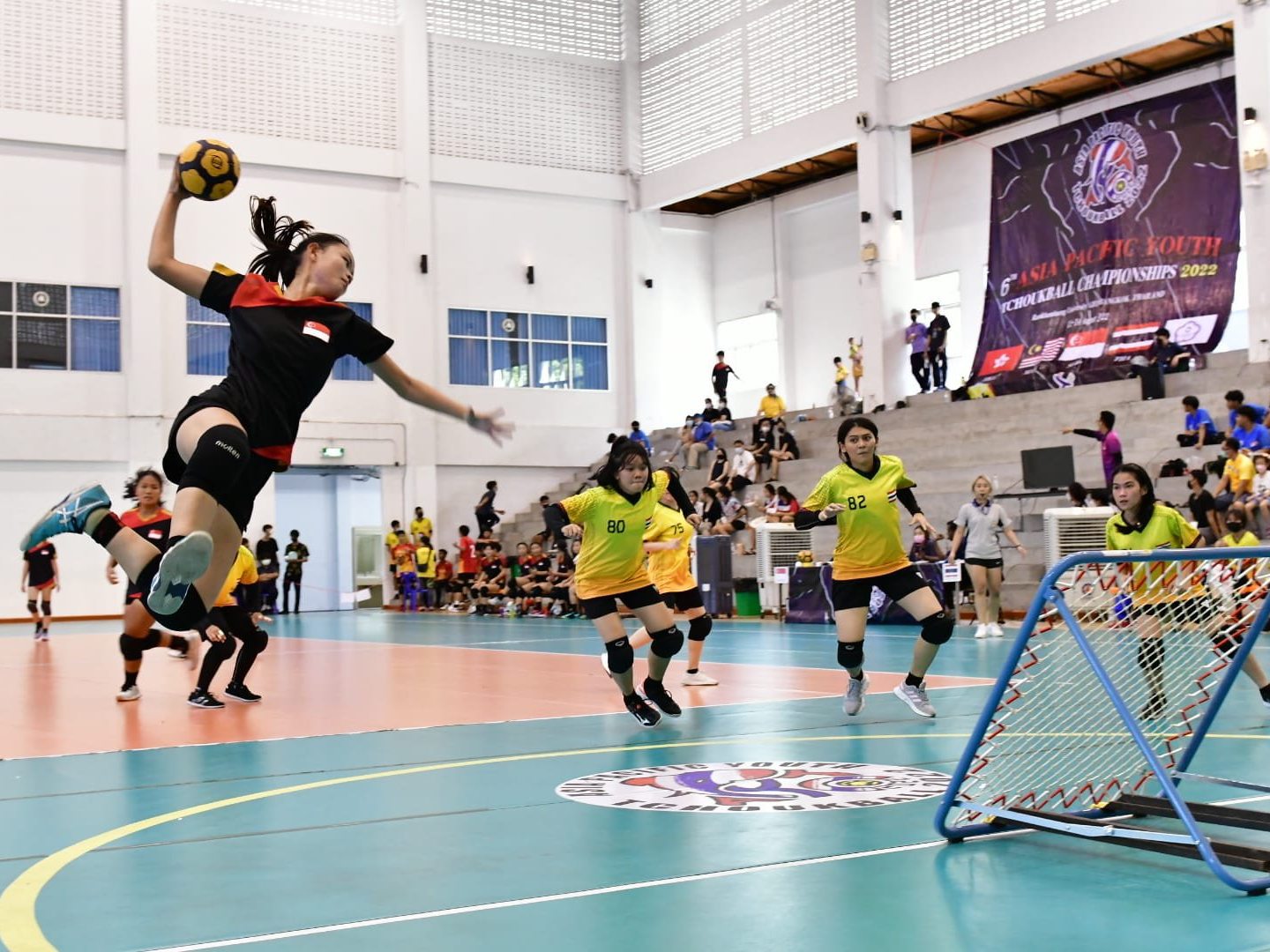Top image: Asia-Pacific Tchoukball Championships / Facebook
If you didn’t know that we’re home to the top women’s tchoukball team in the world, that’s okay. The team were none the wiser too.
The ladies had beaten out Chinese Taipei—said to be global Tchoukball powerhouses—to top the world rankings for the first time on January 1. Thing is, they only found out about their historic feat on January 27, The Straits Times reported.
Team captain Irene Tan addressed the almost comical lag time. She explained that the team doesn’t usually check its rankings. With all that’s been said about the psychological pressures of competitive sports, honestly, more power to them.
What Ball?
Even if your idea of sports spectatorship involves drooling over the ripped men and women in Netflix’s Physical: 100, you’re probably aware of our prowess in swimming, badminton, and table tennis.
Tchoukball, though, is definitely more of a niche sport. How do you even properly say “tchouk”?
Anyway, the indoor team sport has players taking turns hurling a ball at a trampoline-esque frame called the rebounder. Points are scored when an attacking player manages to bounce the ball outside a D-shaped zone around the rebounder without it being intercepted by the opposing team.
Tchoukball dates back to the 1960s in Switzerland, but it only started growing in Singapore after the Tchoukball Association of Singapore was founded in 2008.
Sadly, tchoukball clubs in some local secondary and primary schools have been getting shut down in recent years as more nationally recognised sports take priority, Delane Lim, the president of Tchoukball Association of Singapore told TODAY.
Contrast that to the women’s team’s stellar results (plus the men’s team’s respectable world No. 3 ranking), and the shafting of tchoukball almost seems absurd.
How often do our athletes in more mainstream sports achieve the same feat of topping the world rankings?
Maybe it’s time to consider being a big fish in a small pond, rather than putting everything into being a small fish in a big pond. It’s nice to dream that Singapore will make it to the World Cup by 2034, but let’s not kid ourselves here.
Of the $70 million that the Ministry of Culture, Community and Youth allocates to athletes under the High-Performance Sports (HPS) system, precious little trickles down to niche sports.
Understandable, of course. Why put aside some money for an unpopular sport that can’t promise spectators and attract sponsors? When was the last time you invited your friends over to watch a live match of Korfball?
Athletes who represent Singapore typically receive funding through National Sports Associations (NSA), but for those in (relatively) niche sports where their associations aren’t eligible to receive any government monies, self-funding is often the only option. Things are getting better, but at this point, might as well just go big or go home.
In the spirit of justice for players of all the non-mainstream sports out there, we inspect a few others that are actually putting Singapore on the map.
Indoor Skydiving
Traditional skydiving involves leaping from planes, but athletes in this equally extreme sport float in vertical wind tunnels instead, and perform intricately choreographed routines.
At the young age of 20, local indoor skydiving star Kyra Poh has already clinched multiple medals at the FAI World Cup of Indoor Skydiving, including a gold medal last April.
Talk about a high flyer.
Kitefoiling
To understand kitefoiling, you’ve got to first understand kiteboarding—where a rider on a board is propelled across the water’s surface by a giant kite.
Got that? Kitefoiling is just kiteboarding with the addition of a Hydrofoil, or underwater fin, on the rider’s board, allowing a smoother and speedier ride.
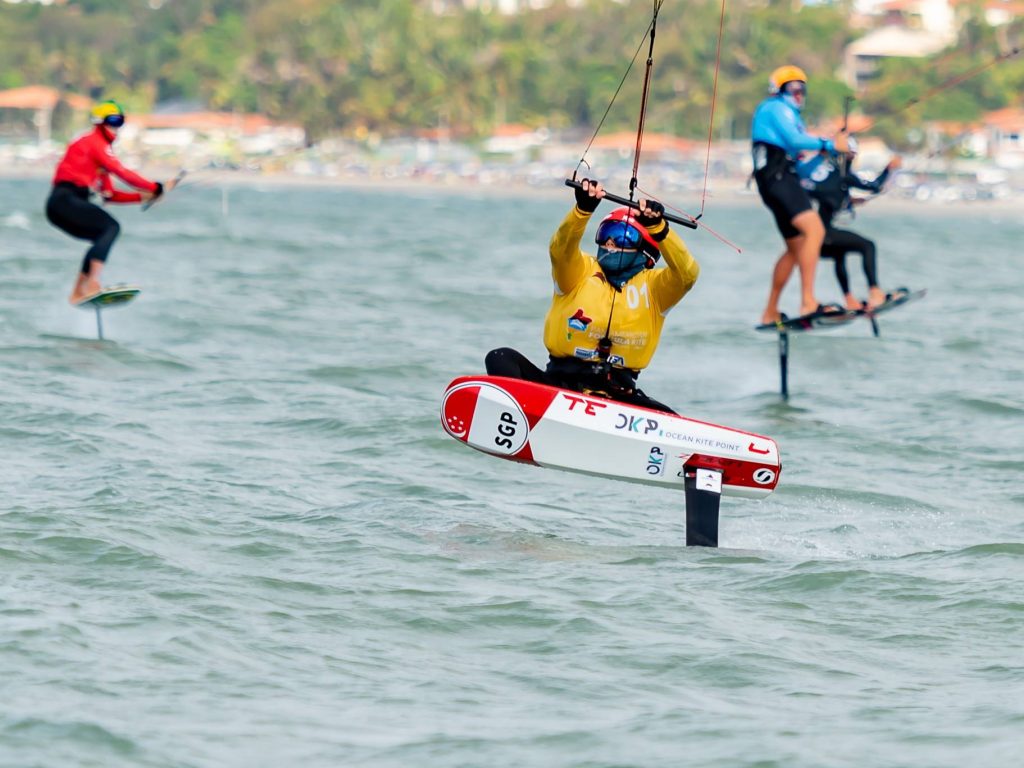
Singapore has a grand total of one kitefoiler who competes regularly overseas: 15-year-old Maximilian Maeder.
He’s not old enough to drink but Maximilian has already surfed his way to victory in the two youth world championships and the Formula Kite European Championships, all achieved within the last year.
Underwater Hockey
You can play it on a pitch, on a table and yes, underwater.
Just like its open-air variants, underwater hockey involves players trying to get a puck into the opposing team’s goal with sticks. The game is played underwater, as its name suggests, and players have to hold their breath.
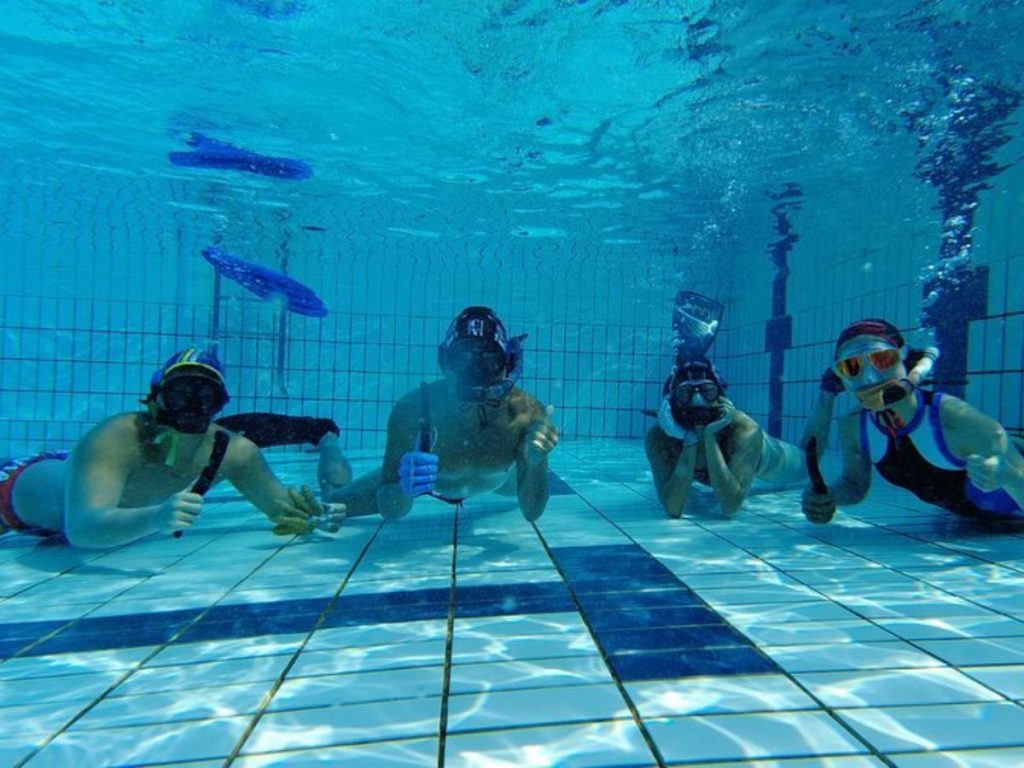
Stirling Underwater Hockey Club, established in 2004, is currently the only club offering the sport here.
The Singaporean team has seen international success, winning both men’s and women’s gold medals at the 2019 SEA Games. That was also the first time the sport was included in the Games.
Mobile Legends
Playing games on the phone isn’t a waste of time, dad. Just take it from Singapore’s national team, which defeated Malaysia to claim the bronze medal in the 31st SEA Games.
Though it didn’t turn out to be a worldwide phenomenon when compared to the similar likes of DOTA or League of Legends, the mobile game is still a titan in Asia. It was even named the most-watched mobile esports game in 2022.
The game’s popularity—in Southeast Asia, especially—is attributed to the fact that anyone with a smartphone and internet connection can hop onboard, so you don’t need a PC or console to play. And if there’s anything Singapore loves to do, it’s to be the top dog across the region.
It probably also helps that it pays to be good at the game, big time. The Mobile Legends: Bang Bang Southeast Asia Cup last June had an eye-watering prize pool of US$300,000.
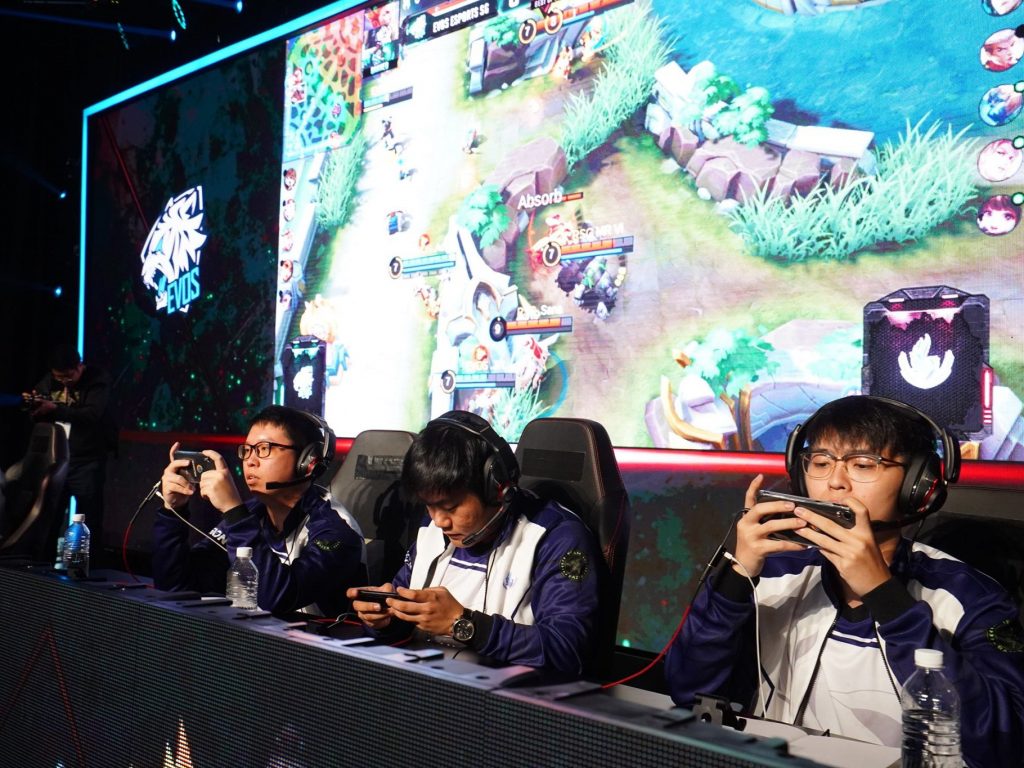
Chinese Chess
Here’s another sport that relies more on brains than brawn.
Also known as xiangqi, Chinese chess is undeniably a sporting event for the ages. Just ask the elderly men thronging the pavilion in front of Buddha Tooth Relic Temple in Chinatown.
Fun fact: Chinese chess rockstar Alvin Woo says he honed his skills battling uncles in void decks. The 39-year-old did Singapore proud at the 31st SEA Games last May, clinching the gold medal in the men’s standard singles event.
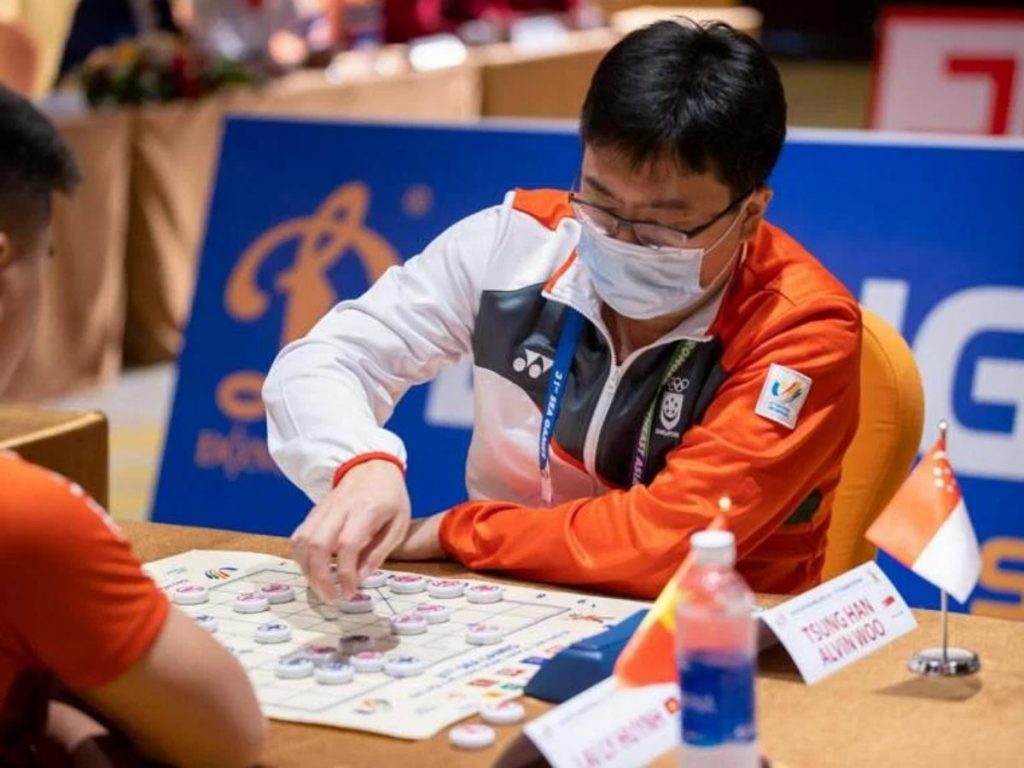
Pokémon
Simone Lim is only nine, but she’s already accomplished what so many of us failed to do when we were kids: To be the very best like no one ever was.
The competitive Pokemon player became Singapore’s youngest esports champion when she won the Pokemon Oceania International Championships Junior Division in 2020.
To win a competitive Pokemon video game battle, a player assembles a team of six Pokemon (catching ‘em all optional) and knocks out their opponent’s entire squad.
This ain’t the Pokemon from our days battling Gary Oak on the Game Boy. These days, it’s a lot more complex with a lot more Pokemon, a lot more status effects, and a lot more evolutions. From selecting the right types of Pokemon to predicting your opponent’s moves, it takes a sophisticated strategy to emerge victorious from each battle.
You have to study up a lot of stats to prep for battles. Which isn’t that much different from what we’re used to anyway.
Other Things That Should Be National Sports
While we’re proud of all our athletes, no matter the popularity (or lack thereof) of their sport, winning isn’t everything. Uniquely Singaporean activities should count as national sports too so anyone can be a champ.
Endurance Queueing: Nobody, and I mean nobody, can outlast a Singaporean in a queue. We’ll wait hours for anything from good food to the latest iPhone.
Mall-rathon: If we’re not eating, we’re usually hanging out in a shopping mall for free air-con. The rules of this race are simple—find the quickest path from the top floor to the ground floor. Bonus points if you spot a good shortcut to skip the crowds and slow walkers.
Bandwagon Hopping: The speed at which Singaporeans hop onto trending items needs to be studied and turned into a competition. You blink once and suddenly half of the country is toting a Gentle Woman bag. Blink again and you’re the only one in your social circle without a Bondee account.

